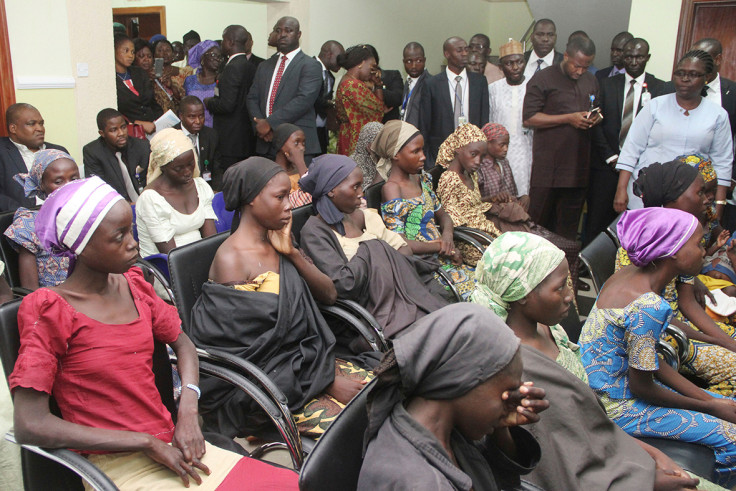Three years on, Nigeria is still negotiating with Boko Haram over release of Chibok girls
197 teenagers abducted on 14 April 2014 are still missing.

The Nigerian government is still negotiating with Islamist group Boko Haram to secure freedom for the remaining girls who were kidnapped from Chibok village, Borno state, three years ago tomorrow (14 April).
Last year, negotiations brokered by Switzerland and the Red Cross led to the release of a group of 21 of the 276 students kidnapped from the boarding Government Secondary School in Chibok, northern Nigeria, a Boko Haram stronghold.
Others have been rescued or found after they escaped from where they were being held captive. 197 are still missing.
In his message on the third anniversary of the mass abduction of the girls aged 16 to 18, President Muhammadu Buhari, who in 2015 became the first opposition candidate to win a presidential election in Nigeria, described the kidnapping as "one of the worst crimes committed against [Nigeria's] citizens".
"The Federal Government is willing to bend over backwards to secure the release of the remaining Chibok girls. We have reached out to their captors, through local and international intermediaries, and we are ever ready to do everything within our means to ensure the safe release of all the girls," Buhari said in a statement.
"We were determined to secure the release of the Chibok girls and others forcefully abducted from their homes and communities and retake the occupied territories."
The kidnapping spurred global outrage.
Who are Nigeria's Boko Haram terrorists?
Boko Haram, which has renamed itself Iswap, fights against Western influence in Nigeria and aims to impose its version of Sharia law throughout occupied territories.
The group launches attacks in Nigeria and neighbouring countries in a bid to take control of more territory. Three Nigerian states − Adamawa, Borno and Yobe − have been under a state of emergency since May 2013.
Boko Haram has killed more than 20,000 people since 2009 and was deemed the world's deadliest terror group, surpassing Isis in November 2015. Nigeria has also become the world's third-most terrorised country as a result of the group's violent insurgency.
© Copyright IBTimes 2024. All rights reserved.






